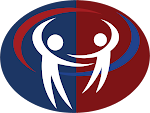 If your child suffers a traumatic event, such as a beating, a stabbing, a rape, robbed at gunpoint, shot or witnessing any of these events you would expect any physical wounds to be treated with a reasonable stay in the hospital and then therapeutic intervention for the psychological wounds. You would encourage your family to offer support, understanding and a sense of safety and further evaluation and treatment as necessary.
If your child suffers a traumatic event, such as a beating, a stabbing, a rape, robbed at gunpoint, shot or witnessing any of these events you would expect any physical wounds to be treated with a reasonable stay in the hospital and then therapeutic intervention for the psychological wounds. You would encourage your family to offer support, understanding and a sense of safety and further evaluation and treatment as necessary. You would be hard pressed to find a single young person that we work with from the inner city areas of Los Angeles that hasn’t suffered these traumas on multiple occasions. Many of our young people went to more funerals last year than I have been to in my entire life. Homicide is the leading cause of death for African American men between the ages of 15 and 34. Stories of shootings and stabbings are commonplace in our discussion circles. Yet, when the wounds are physical, about one in ten will be admitted to the hospital and the others will be patched up and sent back out. The healthcare system will allow doctors to treat the physical wounds, but provides no medicine for the psychological and spiritual ones.
So what does a young person do when they are repeatedly exposed to trauma without the care or counseling to help deal with it? Often they self-medicate with alcohol or drugs. They may become violent themselves as this is what they see, or have been taught. They might buy a gun for protection. Or they may simply display the signs of Post Traumatic Stress Disorder: hyper-vigilance and reactivity, dissociation, difficulty concentrating, difficulty sleeping, etc.. And how do we as a society respond. In his book “Wrong Place, Wrong Time”, John A. Rich M.D., M.P.H. puts it this way:
"…'wrong place' is a community abandoned and divested of the financial and human resources that are needed for community residents to remain safe. The 'wrong time' might reflect a political environment that can only see these young men as 'sick' or 'bad' rather than 'injured.' Or that can only see punishment, rather than healing, as the single remedy for violence."
I had the pleasure of meeting Dr. Rich Friday night at a presentation he gave at MOCA (Museum of Contemporary Art). In his short presentation I was struck by how his stories (primarily of young African-American males admitted to hospitals on the east coast) paralleled the ones we see with our youth, and he shared the science and statistics behind the experiences that we engage every day. His empathy and compassion were obvious and he had a way of connecting with the audience that said “we’re in this together”.
On the national scene we are witnessing a protracted and ugly political debate about health insurance (not health care) when what we really need is an exploration of how we can finally find the medicine that our wounded souls need. Dr. Rich’s book promises to be a solid contribution to that exploration. He goes on to write:
“The stories recounted here convince me that there is a right place and a right time to understand how violence affects the lives of young men of color. The right place is the community, defined not simply by the neighborhoods where these men live but also the larger community of which all of us are residents. Now is the right time to hear the clear resonance of their voices and involve them as central participants in formulating the solutions.”
I would add that now is the time to understand that we all have a stake in this situation. In real financial terms: Estimates show that incarceration alone costs the states over $50 bil. per year (over 10 bil. In California). I don’t know the actual numbers, but I’m sure the costs of emergency room treatment, adjudication, victims’ costs, and the like multiply this number significantly. More importantly, what are the costs to our collective soul as a society? These children are our children. Their pain is our shared pain.
"I have come into this world to see this:
the sword drop from man's hands
even at the top of their arc of
anger because we have finally
realized there is just
one flesh we can wound."
Hafiz
respectfully,
Tony
 Tony LoRe
Tony LoReFounder/CEO
Youth Mentoring Connection/Urban Oasis



.gif)



No comments:
Post a Comment